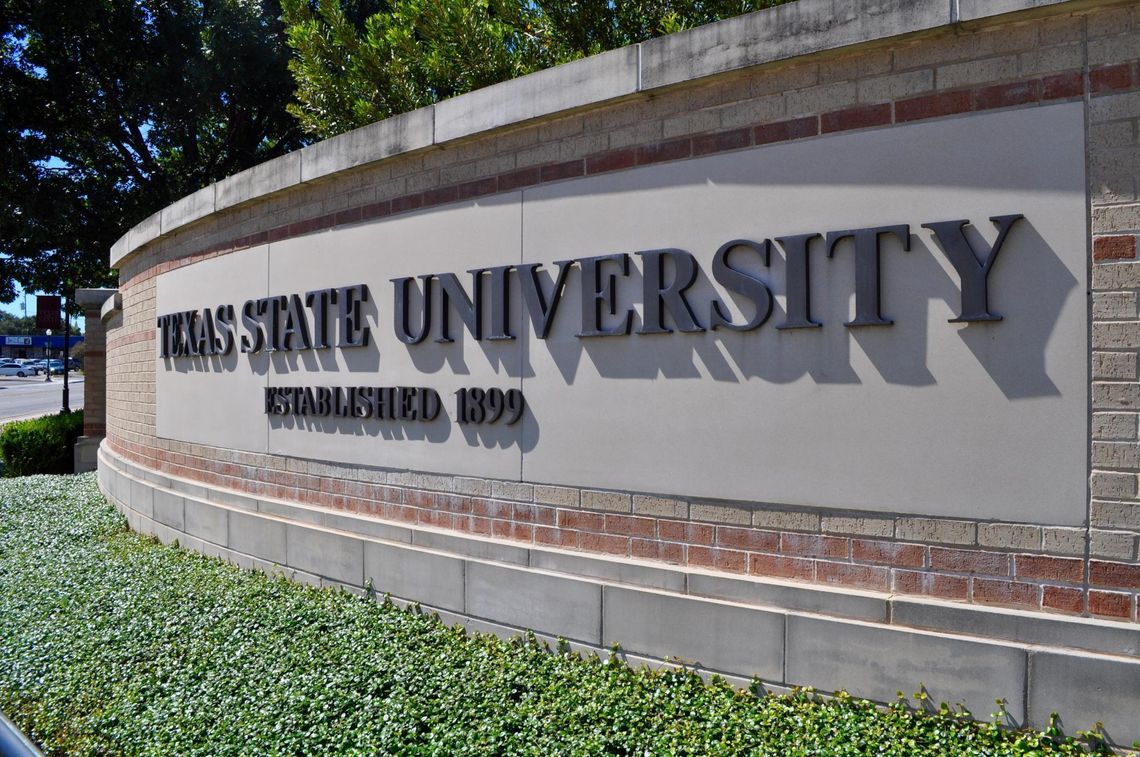Texas State libraries remain open and continue to serve patrons each day, making it challenging to follow social distancing guidelines set by the Centers for Disease Control and Prevention.
Across the nation the #closethelibraries movement demands libraries close to save lives while risking the future of these vital social service centers.
The Texas State Employees Union (TSEU) is asking members to call and email Texas State President Denise Trauth to close the libraries saying, “For the safety of the Texas State and San Marcos communities, we demand that you close Alkek Library. Despite reduced hours limited to students, up to 500 people are entering the library every day, making it impossible to enforce CDC best practices such as social distancing or the use of masks and gloves.”
TSEU demands all staff move to work from home and that there are no layoffs of furloughs. The union asks that anyone who cannot work from home like guards and custodians should be provided Emergency Closure paid leave until it is safe for them to return or work from home is possible.
University employees are listed as essential to perform social distance learning and other essential functions, according to a university email. Texas State University has listed 48 department as essential including Libraries and IT Assistance which remain open to students living on campus despite having one faculty member COVID-19 positive.
Texas schools have been closed for weeks and universities moved instruction online weeks ago, including Texas State University who made the decision to cancel face-to-face learning on March 12. However, the libraries remain open to students living on campus to provide essential support services, although they encourage students to access these services online.
Many universities including the University of Texas at Austin closed their libraries after the American Library Association (ALA) urged all libraries to close on March 17 to prevent the spread of COVID-19. A statement from the ALA said, “Libraries are by design unable to practice social distancing to the degree recommended by the Centers for Disease Control and Prevention and other health authorities. Keeping libraries open at this time has the potential to harm communities more than help. We underscore the importance and need to come together in this crisis and commit to ensuring our libraries, which provide so many important services to our communities, do not serve as vectors for a fast-moving pandemic.”
The new Texas State policy for essential departments is to have at least one staff member in the office during the 40 hour work week, although it is up to employees to advocate for themselves to work from home by submitting a request for approval, the university said in an email.
On March 23, IT Division Director Ken Pierce wrote to library staff to clarify that not all staff would be working from home and implied they must remain open to avoid staffing or pay cuts, “There are many reasons for not shutting down completely; some apparent, some not so. This pandemic will be impacting us for many months to come and many employers are having to lay off staff or cut pay right now. Any decision to shut down the university would undoubtedly force the university to take similar measures. I am committed to doing everything possible to keep the university running, keep us educating students, and continuing to take care of our employees.”
While the library closed to the public on March 30, employees have been told their services are critical to university operations even staff hurried to move more than 20 services online, including online chat with librarians and many journals and books.
There is a national movement to close libraries led by the Library Freedom Project who are running supportive efforts for libraries that haven’t yet closed.
Alison Macrina, executive director of the Library Freedom Project, explains that it’s important to close libraries right now because people gather there; libraries are one of the few remaining indoor public spaces, including academic libraries. “We want them to be community spaces, but that is a problem when we have a pandemic that feeds off of people forming groups and meeting each other in public. It’s a difficult decision but those people’s lives are much more important than our ability to provide community spaces right now” Macrina said.
Library administrators are left to decide for themselves whether to close by weighing differing local, state and federal recommendations. The ALA urges libraries to close, Gov. Greg Abbott classifies universities as essential and the CDC recommends social distancing practices that cannot be met in libraries.
Many librarians are haunted by the 2008 recession when they saw massive reduction in budget, layoffs and at the same time saw a massive increase in needs for their services. High unemployment rates brought people to libraries for job searching assistance and to be connected with other social services.
“People rely on libraries because there are no other places to find that kind of help,” Macrina said. “We are fighting to justify our existence and people in administrative capacity are thinking about that bleak future. They might say if we stay open now, that will be a testament to how important we are. In reality that thought is short sighted and will contribute to people’s deaths.”
The Library Freedom Project emphasizes that while it is important to close buildings right now, remember to support libraries because they are a vital part of society, one that will likely be needed in the coming years as the economy restarts and buildings reopen.
Macrina added libraries need to save lives first and fix their budgets later, “I am empathetic for people making these decisions. We want to demonstrate our value, but when it’s an issue of life and death, we hope they would choose lives.”






